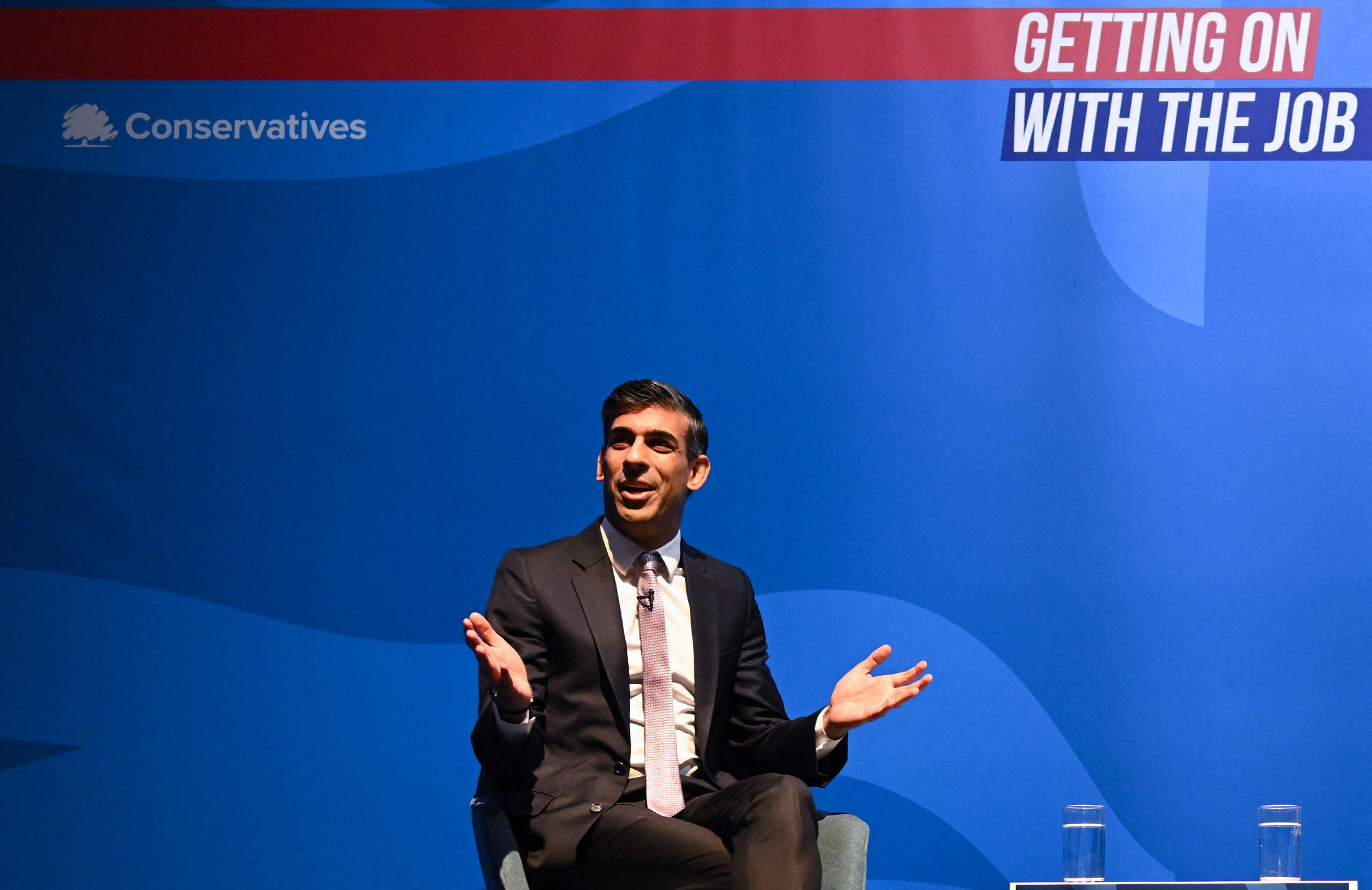Scrap the National Insurance hike and make the wealthy pay instead
At next week’s ‘mini-budget’ the Chancellor should acknowledge the crisis facing millions of people, and bring forward a package that protects living standards


Your support helps us to tell the story
From reproductive rights to climate change to Big Tech, The Independent is on the ground when the story is developing. Whether it's investigating the financials of Elon Musk's pro-Trump PAC or producing our latest documentary, 'The A Word', which shines a light on the American women fighting for reproductive rights, we know how important it is to parse out the facts from the messaging.
At such a critical moment in US history, we need reporters on the ground. Your donation allows us to keep sending journalists to speak to both sides of the story.
The Independent is trusted by Americans across the entire political spectrum. And unlike many other quality news outlets, we choose not to lock Americans out of our reporting and analysis with paywalls. We believe quality journalism should be available to everyone, paid for by those who can afford it.
Your support makes all the difference.A perfect storm of soaring energy bills, runaway inflation, rising interest rates and falling real wages have combined to deliver the biggest blow to living standards in nearly half a century.
After the public health emergency of recent years, we now face a social emergency. In the fifth-biggest economy on earth, nearly half of all children will soon be living in families that have to make sacrifices on essentials. Already to our shame, our country has more food banks than branches of McDonalds.
At next week’s spring “mini-budget” the chancellor should acknowledge the deepening crisis facing tens of millions of people and bring forward an emergency package to protect living standards.
Yet there are worrying signs the government will try to do as little as possible and instead seek to blame the cost-of-living crisis on the horrific war on Ukraine.
The truth is this cost-of-living crisis doesn’t just predate Putin’s illegal invasion, much of it is actually the direct result of policies coming out of Downing Street.
Abandoning the triple lock for pensioners, real-terms cuts to public sector pay and the scrapping of the Universal Credit uplift have all pushed people further into poverty.
Next month, the Tories are going to make this even worse by hiking National Insurance payments for tens of millions of working people.
There is simply no need for such a regressive tax increase. It is a deliberate choice and is part of the government’s plan to pay for this economic crisis on the backs of the majority of people.
While the vast majority of people are worried about how to pay their heating bills, the wealthiest have been enjoying a bonanza.
British billionaires increased their wealth by £10bn in the first year of the pandemic - that’s an eye watering £290m per day. Gas and oil giants are making £900 profit every second from soaring prices and just last month the government voted for a multi-billion pound tax cut for bankers.
So there is plenty of scope to raise billions from the very wealthiest in society, and use this to fund an emergency package to alleviate economic hardship.
That is why I have launched a campaign to scrap this National Insurance rise for working people and to replace it with a Wealth Tax on the top 1 per cent.
My parliamentary motion calling for this has already been backed by over 60 MPs from eight parties and this week I will be presenting a petition in parliament signed by thousands calling for this change.
An annual tax of just 1.5 per cent on all wealth above £5m would raise £14bn per year, according to the UK Wealth Tax Commission calculator. That is the same as the National Insurance hikes will raise.
Given that there are only around 260,000 families in the top one percent of households, and even fewer with wealth over £5m, this should be a simple choice for any government interested in protecting the majority.
We also need a wider debate in our country about wealth taxes. We are one of the most unequal countries in Europe on income distribution – but it is even worse when looking at wealth.
The richest 1 per cent hold almost a quarter of UK wealth. Yet, income derived from wealth is often taxed below income from work. So, for example, someone living off share dividend payouts pays less in tax than someone who earns the same amount by getting up every day and going out to work. How can that be justified?
To keep up to speed with all the latest opinions and comment sign up to our free weekly Voices Dispatches newsletter by clicking here
Likewise, Capital Gains Tax – paid on profits when selling assets like shares or a second home – is paid below income tax rates. Simply equalising this and removing exemptions would alone raise around £17bn a year.
We could even use a one-off wealth tax to create a huge social emergency fund. A one-off 10 per cent tax on wealth above £100m would raise £69 billion. That could be used to support people through this crisis, and help rebuild communities hit by a decade of austerity and the slowest pay growth in 200 years.
But the first step towards taxing wealth rather than income should be for the chancellor to scrap the National Insurance raise and instead make the very wealthiest pay – not those at the sharp end of a cost-of-living crisis.
The clock is ticking down to a cost of living catastrophe, but there is still time for the chancellor to do the right thing.
Join our commenting forum
Join thought-provoking conversations, follow other Independent readers and see their replies
Comments